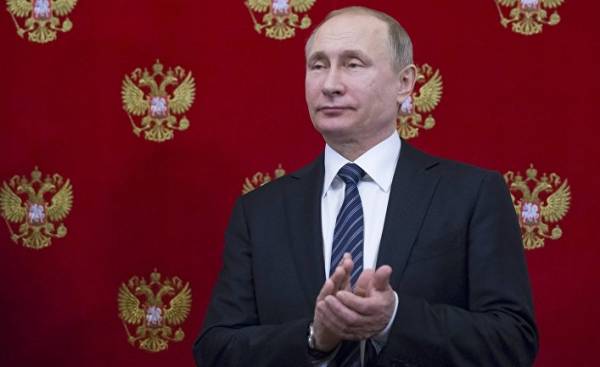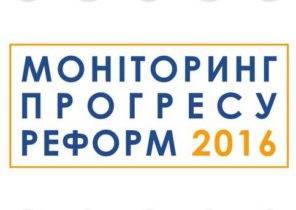
While the United States together with the Western allies were engaged following September 11, the wars in Afghanistan and Iraq, the global counter-terrorism operations and recovery from the financial crisis of 2008, they largely lost sight of what was happening with their main adversary in the cold war with Russia.
In 2000, the first President of post-Soviet Russia, Boris Yeltsin, a known fan a drink or two, handed power into the hands of the drinker from the KGB and his associates. After the attacks of 11 September, President Vladimir Putin expressed his support to the then US President George Bush and his friendly tone was the West like.
Despite this, Putin and his colleagues, many of whom are former employees of the Soviet security services, was aimed at the revival of Russia as a great power in accordance with his own vision.
By the time Putin ally Viktor Yanukovych in 2014 was dismissed from the post of President of Ukraine, Moscow has long been hatched a plan to fight what it considered attempts by Washington to keep Russia in submission.
In the USA, the former head of the FSB, and now the President has decided to apply the methods of political propaganda, mastered by the Russian security services a few decades ago, however, taking into account the new opportunities of the era of social media.
Putin’s regime has focused on opposition to what was considered the American threat, the Moscow authorities, subjected to humiliation after the cold war, while we and a growing number of our European allies has focused on terrorism, demographic changes and economic volatility.
Watching the US expand NATO to Russian borders, Putin has decided that its democratization efforts, the United States wreaked havoc among Kremlin-friendly governments in the former Soviet space, and thus threaten Russia. In response, Moscow launched a merciless campaign aimed at turning the principles of open democracy against themselves.
The latter meant manipulation of the media, the work of Western lobbyists of questionable character and political strategists, potentially damaging Western government officials and elected candidates — and all of this was only adding fuel to the fire of public anxiety and discontent, which broke out in many Western countries.
In other words, Putin’s government did what usually does the KGB (now the FSB and SVR). It has studied the mental profile of the West and turned it against itself, based on immediate problems and disagreements, which fight the USA and other countries. His goal was to prevent threats to the Russian authorities.
(It is worth noting that Putin’s government with its increasing authoritarianism the transformation of the West into an object of hate everything else was a convenient tool which helped to distract people from economic problems, corruption and human rights violations within the country and to enlist popular support).
Now obvious attempts of subversive activities on the West by blatant interference in the presidential election of 2016, the work of such propaganda networks like Russia Today (featuring Larry king and ed Schultz) and Sputnik News, as well as the army of Internet trolls, cooperation with such American political figures, legislators and heads of election campaigns, as Roger stone, by Paul Manafort, a Republican party Congressman from California Dana Rohrbacher (who in 2012 told the FBI that Russian spies kept trying to make him “agent of influence”), Michael Flynn, Jill Stein, California separatists, etc., as well as lesser known attempts to bribe influential American journalists — all this testifies to the fact that Russia entered into a serious struggle with the basics of Western democracy.
There are examples of more sophisticated and unobtrusive promotion of Russian interests prominent figures among American right-wing: since the media’s right wing such as Fox News, leading of which, in particular Sean Hannity and Tucker Carlson show quite strange attitude to everything that concerns the administration of the tramp and Russia (as examples see here, here, here and here), and ending with praises to Russia, who sing extremely right-wing extremists from Richard Spencer, David Duke (the latter supposedly once rented Moscow apartment) and their followers.
Finally, there is the attitude of the tramp toward Russia. None of his bestydno can’t compare with the first group of examples, yet they often give off a kind of unwilling willingness of some Americans to promote the interests of Russia at the expense of the interests of the West for a variety of reasons.
This is consistent with the long-established style of work of the KGB, in which a variety of asymmetric methods are used in order to convert internal weaknesses of the opponent against him. Russian security services have resorted to fluid and ambiguous form of reference to physical war, which aims to use social, political and economic weakness of the opponents, using the fact that the national defence Act (NDAA) from 2016 describes as “measures applied with the aim to intensify the resistance movement or the riots, to restrain, incapacitate or overthrow a government or occupying power by acting through or with an underground, auxiliary or commando forces in a restricted area”.
We have already seen how successfully this geopoliticheskom judo was used after the overthrow of Yanukovych in Ukraine, where Russia has unleashed a hybrid war in order to seize territory and to lock the nation into a state of chaos, fueled partly hidden, partly apparent by the war.
In the journal NATO itself read:
“As the conflict in Ukraine, hybrid war involve multifaceted efforts to destabilise a functioning state and polarize its society. Unlike conventional warfare “center of gravity” in a hybrid war is the population being the main target.
The enemy is trying to influence influential politicians and key decision makers by combining dynamic operations with subversive actions. The aggressor often resorted to clandestine methods of work, to escape responsibility or punishment. In the absence of irrefutable evidence, NATO will find it difficult to make a decision about the beginning of hostilities”.
The Russian government arrives with the West in ideological terms as well as comes from Ukraine in the physical plane.
His attacks are not limited to Donald trump and interference in the elections of 2016. We are in a dangerous position, face to face with a rival who started the game with a goal to expand its own powers, and only exacerbates the challenges we immediate problems.
Despite increased attention on current and important issues related to corruption trump and his associates, as well as with potential ties to Russia, back to the broader picture of what is happening.
To date, published countless articles that discuss the Russian hacking, the intervention of the Kremlin in elections and trump contacts with Russia. But trump is not the end.
Although large-scale strategy of Russia against the West pretty well covered in the media, these warnings are at risk to sink into the abyss of permanent crisis-era trump.
It is time for our public discourse to refer to a more extensive history of complex crises faced by the West, issues such as political polarization, income inequality, racial tension, erosion of a sense of reality and community of people that actively use foreign enemy. It’s time our leaders — be they politicians, businessmen, media representatives, Republicans, Democrats, national or local leaders, etc. — to develop strategies to combat these complex threats by recognizing them and working tirelessly on the Association of the United States.
In the circumstances of the Civil war, Abraham Lincoln recognized that our fragmented and divided nation in need of a new official narrative that could unite and heal the country. Narrative, pointing to the ideals under which we have always wanted to live. In the Gettysburg address Lincoln had 272 words to wrap our wretched country in the sacred veils of national identity, involving democracy, tolerance and openness. They have helped many generations of Americans after the Civil war to overcome standing in their way difficulties. Today, however, this identity that contributed to the success of the American project, under serious pressure.
The problems I mentioned, require a strategic and holistic approach to their solution, otherwise we risk reversing the movement toward greater freedoms, rights and openness, which for centuries characterized the United States.
In other words, our own internal problems represent an existential threat to our national security. Putin understands this. It is time for us to understand. Probably all these thoughts to the banal obvious, but once again to remind you of them never.
John reed — editor in chief of Just Security.






